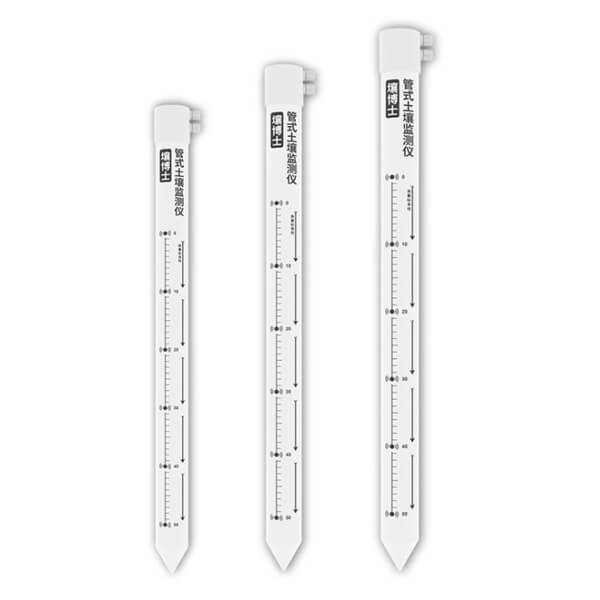Mechanisms of soil moisture affecting crop growth
Soil moisture is a key factor affecting crop growth. It has a significant impact on crop root development, water absorption, metabolic activity, and overall growth. The following are the main mechanisms of soil moisture affecting crop growth:
Affecting root development and water absorption
Soil moisture directly affects the growth and water absorption capacity of crop roots. Appropriate soil moisture can promote the expansion and development of the root system, enhance the water absorption capacity of crops, and thus improve the stress resistance and growth rate of crops. However, too high or too low soil moisture will have an adverse effect on the root system. Excessive humidity will lead to poor soil aeration, affect the respiration of the root system, and even cause root rot; too low humidity will cause crops to lack water, affecting their normal growth and yield.
Affecting metabolic activity and nutrient absorption
Soil moisture also affects the metabolic activity and nutrient absorption of crops. Under suitable humidity conditions, plants can better carry out photosynthesis and other physiological activities, thereby promoting growth. In addition, soil moisture also affects the activity of soil microorganisms, which play an important role in decomposing organic matter and releasing mineral nutrients, thereby indirectly affecting the nutrient supply of crops.
Influence on plant transpiration and mineral nutrient transport
Air humidity has a huge impact on transpiration, photosynthesis, and pathology of greenhouse crops. Transpiration is not only a process of water absorption, but also a driving force for mineral nutrient transport. When the air humidity is too high, transpiration is weak, the ability of plants to transport mineral nutrients decreases, and plant growth will be inhibited, resulting in reduced plant growth, increased leaf shedding, and reduced vitality of flowers or seeds. Therefore, proper soil moisture is essential for maintaining normal transpiration and mineral nutrient transport in plants.
Influence on plant resistance to diseases and pests
The impact of humidity on plant diseases and pests is also an important factor. Excessive humidity can make plants vulnerable to diseases and pests, so it is necessary to prevent and control the occurrence of diseases and pests through reasonable irrigation and humidity management.
Conclusion
In summary, soil moisture has many effects on crop growth, including root development, water absorption, metabolic activity, transpiration, mineral nutrient transport, and resistance to diseases and pests. Therefore, in agricultural production, scientific soil moisture monitoring and management can effectively optimize irrigation decisions, improve water resource utilization efficiency, and promote the healthy growth of crops. With the development of modern agricultural technology, soil moisture monitoring methods are also constantly updated and improved, providing more accurate and efficient support for agricultural production.
https://www.renkeer.com/product/multi-depth-soil-moisture-sensor/
Soil moisture is a key factor affecting crop growth. It has a significant impact on crop root development, water absorption, metabolic activity, and overall growth. The following are the main mechanisms of soil moisture affecting crop growth:
Affecting root development and water absorption
Soil moisture directly affects the growth and water absorption capacity of crop roots. Appropriate soil moisture can promote the expansion and development of the root system, enhance the water absorption capacity of crops, and thus improve the stress resistance and growth rate of crops. However, too high or too low soil moisture will have an adverse effect on the root system. Excessive humidity will lead to poor soil aeration, affect the respiration of the root system, and even cause root rot; too low humidity will cause crops to lack water, affecting their normal growth and yield.
Affecting metabolic activity and nutrient absorption
Soil moisture also affects the metabolic activity and nutrient absorption of crops. Under suitable humidity conditions, plants can better carry out photosynthesis and other physiological activities, thereby promoting growth. In addition, soil moisture also affects the activity of soil microorganisms, which play an important role in decomposing organic matter and releasing mineral nutrients, thereby indirectly affecting the nutrient supply of crops.
Influence on plant transpiration and mineral nutrient transport
Air humidity has a huge impact on transpiration, photosynthesis, and pathology of greenhouse crops. Transpiration is not only a process of water absorption, but also a driving force for mineral nutrient transport. When the air humidity is too high, transpiration is weak, the ability of plants to transport mineral nutrients decreases, and plant growth will be inhibited, resulting in reduced plant growth, increased leaf shedding, and reduced vitality of flowers or seeds. Therefore, proper soil moisture is essential for maintaining normal transpiration and mineral nutrient transport in plants.
Influence on plant resistance to diseases and pests
The impact of humidity on plant diseases and pests is also an important factor. Excessive humidity can make plants vulnerable to diseases and pests, so it is necessary to prevent and control the occurrence of diseases and pests through reasonable irrigation and humidity management.
Conclusion
In summary, soil moisture has many effects on crop growth, including root development, water absorption, metabolic activity, transpiration, mineral nutrient transport, and resistance to diseases and pests. Therefore, in agricultural production, scientific soil moisture monitoring and management can effectively optimize irrigation decisions, improve water resource utilization efficiency, and promote the healthy growth of crops. With the development of modern agricultural technology, soil moisture monitoring methods are also constantly updated and improved, providing more accurate and efficient support for agricultural production.
https://www.renkeer.com/product/multi-depth-soil-moisture-sensor/
Mechanisms of soil moisture affecting crop growth
Soil moisture is a key factor affecting crop growth. It has a significant impact on crop root development, water absorption, metabolic activity, and overall growth. The following are the main mechanisms of soil moisture affecting crop growth:
Affecting root development and water absorption
Soil moisture directly affects the growth and water absorption capacity of crop roots. Appropriate soil moisture can promote the expansion and development of the root system, enhance the water absorption capacity of crops, and thus improve the stress resistance and growth rate of crops. However, too high or too low soil moisture will have an adverse effect on the root system. Excessive humidity will lead to poor soil aeration, affect the respiration of the root system, and even cause root rot; too low humidity will cause crops to lack water, affecting their normal growth and yield.
Affecting metabolic activity and nutrient absorption
Soil moisture also affects the metabolic activity and nutrient absorption of crops. Under suitable humidity conditions, plants can better carry out photosynthesis and other physiological activities, thereby promoting growth. In addition, soil moisture also affects the activity of soil microorganisms, which play an important role in decomposing organic matter and releasing mineral nutrients, thereby indirectly affecting the nutrient supply of crops.
Influence on plant transpiration and mineral nutrient transport
Air humidity has a huge impact on transpiration, photosynthesis, and pathology of greenhouse crops. Transpiration is not only a process of water absorption, but also a driving force for mineral nutrient transport. When the air humidity is too high, transpiration is weak, the ability of plants to transport mineral nutrients decreases, and plant growth will be inhibited, resulting in reduced plant growth, increased leaf shedding, and reduced vitality of flowers or seeds. Therefore, proper soil moisture is essential for maintaining normal transpiration and mineral nutrient transport in plants.
Influence on plant resistance to diseases and pests
The impact of humidity on plant diseases and pests is also an important factor. Excessive humidity can make plants vulnerable to diseases and pests, so it is necessary to prevent and control the occurrence of diseases and pests through reasonable irrigation and humidity management.
Conclusion
In summary, soil moisture has many effects on crop growth, including root development, water absorption, metabolic activity, transpiration, mineral nutrient transport, and resistance to diseases and pests. Therefore, in agricultural production, scientific soil moisture monitoring and management can effectively optimize irrigation decisions, improve water resource utilization efficiency, and promote the healthy growth of crops. With the development of modern agricultural technology, soil moisture monitoring methods are also constantly updated and improved, providing more accurate and efficient support for agricultural production.
https://www.renkeer.com/product/multi-depth-soil-moisture-sensor/
0 Comentários
·0 Compartilhamentos
·69 Visualizações
·0 Anterior




